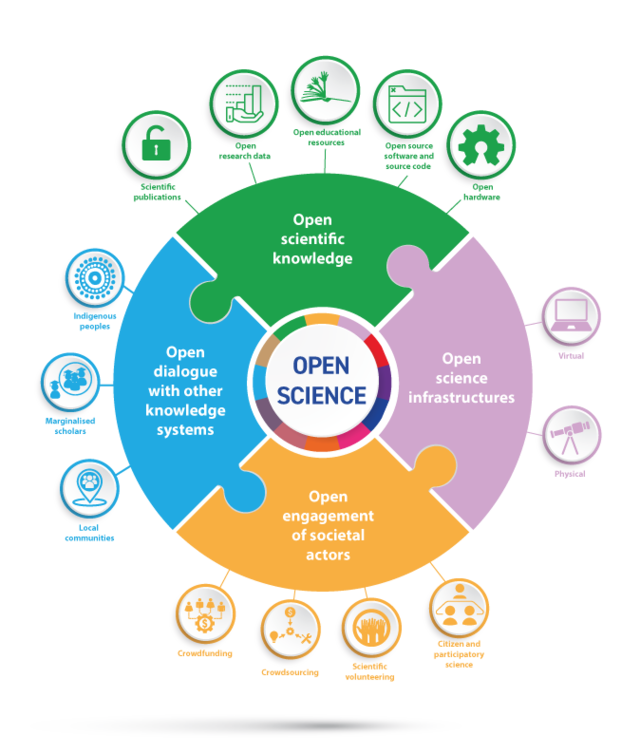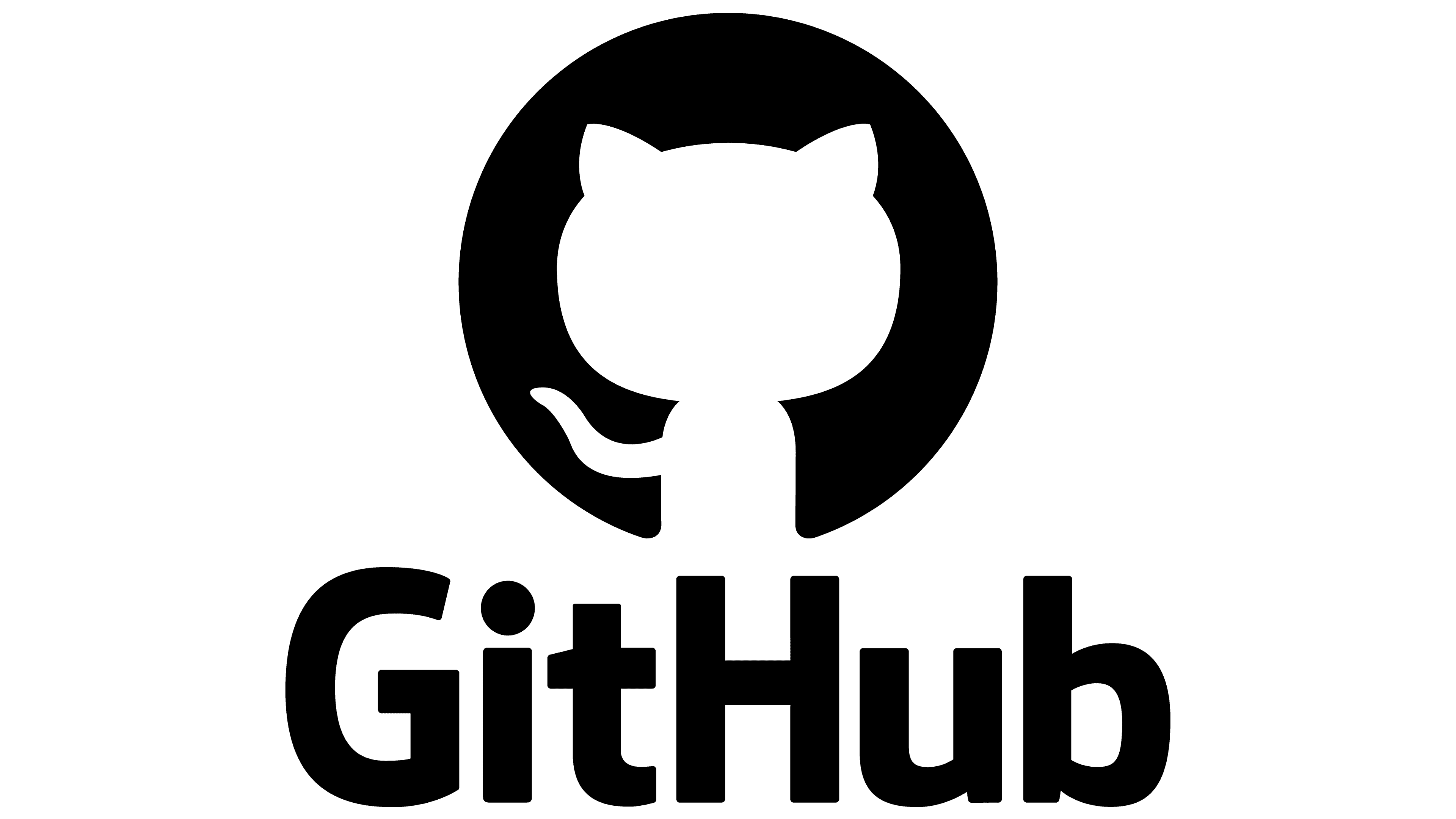
"Open science is the practice of science in such a way that others can collaborate and contribute, where research data, lab notes and other research processes are freely available, under terms that enable reuse, redistribution and reproduction of the research and its underlying data and methods. In a nutshell, open science is transparent and accessible knowledge that is shared and developed through collaborative networks" (Vicente-Sáez and Martínez-Fuentes, 2018, The Open Science Training Handbook.)
 Open science, or used interchangeably for open research encompasses the following:
Open science, or used interchangeably for open research encompasses the following:
Open methods
FAIR data
Open codes
Open access
Open educational resources
Open infrastructures
Open Science helps to increase rigour, accountability, and reproducibility for research. It is based on the principles of inclusion, fairness, equity, and sharing, and ultimately seeks to change the way research is done, who is involved and how it is valued.
These courses answer some of the most common questions you might have about putting open science into practice. A badge will be rewarded upon completion.

This MOOC (Massive Open Online Course) is designed to help equip students and researchers with the skills they need to excel in a modern research environment.

The Open Science Training Handbook is a CC0 resource written to support the practical teaching of open science principles.
The Open Research Toolkit, created by Christopher Eaker, is a useful resource for anyone interested in learning more about open research

Tools for developing reproducible research documents with R is growing. These tools are further combined to create dynamic workflows, allowing unprecedented organization of scientific work. See this website for a listing of such free tools.
Manubot is a workflow and set of tools for the next generation of scholarly publishing. Write your manuscript in markdown, track it with git, automatically convert it to .html, .pdf, or .docx, and deploy it to your destination of choice.
There are various channels or tools with which the research community can engage in open science at various stages of the research lifecycle:
 Kramer, Bianca, & Bosman, Jeroen. (2018, January). Rainbow of open science practices. Zenodo.
Kramer, Bianca, & Bosman, Jeroen. (2018, January). Rainbow of open science practices. Zenodo.
Code collaboration and project management
Visual Studio Code is an integrated development environment by Microsoft for Windows, Linux and macOS. Features include support for debugging, syntax highlighting, intelligent code completion, snippets, code refactoring, and embedded Git.

GitHub is a great place for storing, distributing, collaborating, and version-controlling code.

OSF enables collaborative research and writing, keeping files, data, and protocols in the cloud. Control which parts of your project are public or private, connect to other tools to share data, archive data, track project changes.

Open Science: Michael Nielsen at TEDxWaterloo
Listen to Michael Nielsen, one of the pioneers of quantum computation, on his take on open science collaboration - why some flourished and others fizzled out, as well as his aspirations for the open science community.
The UNESCO Recommendation on Open Science was adopted by Member States in November 2021. Recommendations include:
i. promoting a common understanding of open science, associated benefits and challenges, as well as diverse paths to open science;
ii. developing an enabling policy environment for open science;
iii. investing in open science infrastructures and services;
iv. investing in human resources, training, education, digital literacy and capacity building for open science;
v. fostering a culture of open science and aligning incentives for open science;
vi. promoting innovative approaches for open science at different stages of the scientific process;
vii. promoting international and multi-stakeholder cooperation in the context of open science and with view to reducing digital, technological and knowledge gaps.
The European Union has adopted open science as the official framework for research in higher education (EU Open Science Policy). It is believed that open science will lead to research that is:
In January 2021, the OECD Council adopted a revised Recommendation on access to Research Data from Public Funding. The expanded scope covers research data, metadata, algorithms, workflows, models, and software (including code).